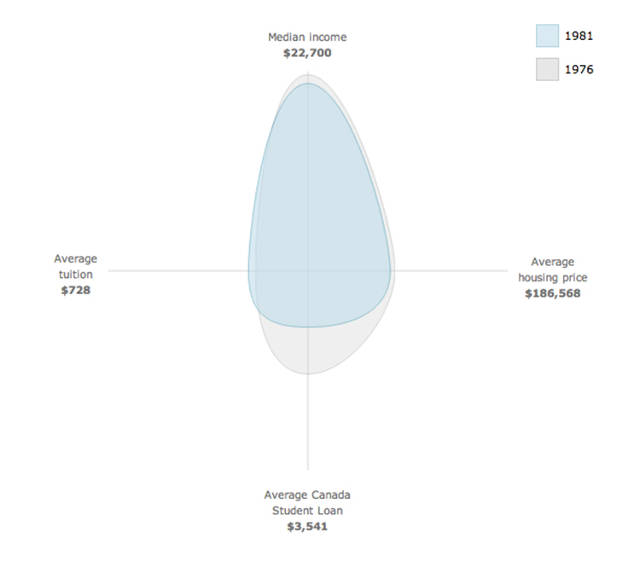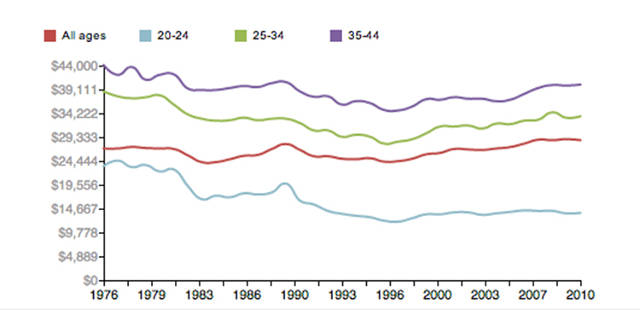If You Graduated After 1976, You Are Getting Screwed By The Economy
This infographic shows the hard truth for anyone in their late 30s or younger: Everything has been more difficult for you, and it’s just getting worse.
The 1970s have strangely become, in retrospect, a golden era, at least for economists. In large part that’s because of what happened ever since to the average American’s share of subsequent economic growth, as documented by a host of indicators. In the 1970s, median income and economic growth began to diverge, the income share of the top 10% started to steadily increase, and the United States generally became a more income unequal place.
But that story isn’t as uniquely American as you might think. An interactive graphic from the Globe and Mail tracks a number of indicators for Canada to answer the question: Who had it worse? You, or the graduating class of 1976? If you graduated after 1976, the answer is, with very few caveats: You do.

The interactive graphic lets you track a few key indicators for a college-graduate-age Canadian: income, tuition, housing prices, and student loans. The results are sobering. Since 1976, average tuition has gone up nearly ninefold. Only student loans borrowed through the government are tracked, but even these are up more than 20%.
You have to go back to 1998 to find any indicator register as “better” than in 1976. And even that “better” approaches an exaggeration: an average housing price that, at $192,929 beats 1976 by $71 in 2010 dollars. That glimmer of affordability was followed by two decades of steady increases, to the point that now there is widespread concern over a possible housing bubble.

Perhaps the most alarming part of the picture, though, is in median income for 20- to 24-year-olds. In 2010 dollars, it fell like a rock in the recession of the early 1980s, from $22,700 in 1981 to $16,600 in 1983 and has remained essentially stagnant ever since.
As Rob Carrick writes in the accompanying column: “Prosperity has left young adults in the dust.”
“In a way, it was easier for young people in the past than it is now,” [Benjamin Tal, deputy chief economist at CIBC World Markets] said. “Basically, you’re running faster just to stay in the same place today.
No comments:
Post a Comment